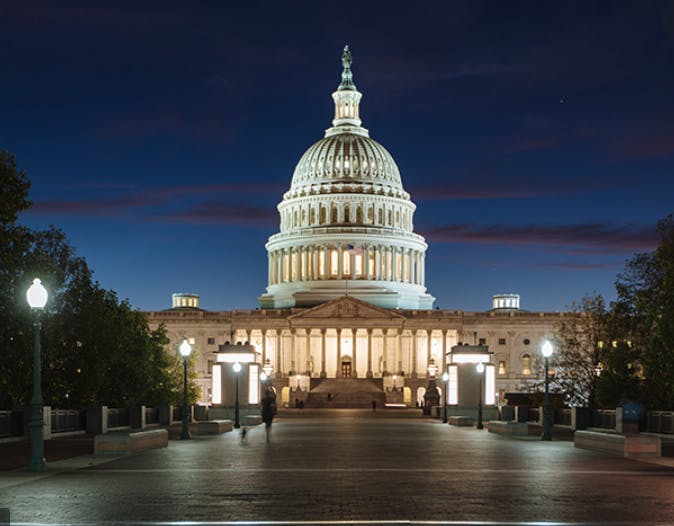June 10 – Struggling Independent Restaurants and Bars Praise Introduction of $60 Billion Refill of SBA’s Restaurant Revitalization Fund

FOR IMMEDIATE RELEASE
June 10, 2021
CONTACT:
Jeff Solnet
jeff@precisionstrategies.com
Struggling Independent Restaurants and Bars Praise Introduction of $60 Billion Refill of SBA’s Restaurant Revitalization Fund
Independent Restaurants: “As long as locally owned restaurants and bars are still hurting, we will keep fighting.”
1.46 million restaurant and bar workers are still jobless, supplier costs are rising, and 90,000 small businesses have closed since the start of the pandemic
WASHINGTON D.C. – Today, Reps. Earl Blumenauer (D-OR-3) and Brian Fitzpatrick (R-PA-1) and Sens. Roger Wicker (R-MS) and Kyrsten Sinema (D-AZ) introduced the Restaurant Revitalization Fund Replenishment Act in both chambers of Congress, which provides $60 billion in additional funding for the Restaurant Revitalization Fund (RRF).
This introduction comes at a pivotal moment for the restaurant and bar industry, which has lost over $280 billion and only received $28.6 billion in dedicated RRF relief. These businesses are still suffering from the revenue-hampering environment created by the pandemic, as food costs rise, 21 states continue to impose dining restrictions, and 1.46 million restaurant and bar workers remain jobless. This relief will allow many of the nation’s 500,000 independent restaurants and bars the support they need to survive the pandemic and the 16 million people they support to survive the pandemic.
"As long as locally owned restaurants and bars are still hurting, we will keep fighting," said Erika Polmar, Executive Director of the Independent Restaurant Coalition. “Refilling the Restaurant Revitalization Fund is the most important thing Congress can do to get their constituents back on their feet and help their communities thrive. The pandemic left independent restaurants and bars with rising costs, reluctant customers, and ongoing restrictions on dining from state governments nationwide. These headwinds will be insurmountable for many businesses through no fault of their own. The IRC is thrilled to see Senators Wicker and Sinema and Representatives Blumenauer and Fitzpatrick stand together to protect this industry and urge all members of Congress to support refilling the Restaurant Revitalization Fund."
“My family-owned catering business desperately needs this grant in order to survive,” said Amy Long, co-owner of Orchard At The Office in Richardson, Texas. “Prior to the pandemic, our business grew at a record rate. COVID-19 decimated our small business that supports our family of six and employs 24 people. At one point during 2020, our business was down as much as 95%. We have exhausted every other federal relief option: both rounds of PPP and EIDL. If Congress does not refill the Restaurant Revitalization Fund, we will have no choice but to close our business for good. Senators Cornyn and Cruz and members of Congress must support refilling the Restaurant Revitalization Fund so my family’s business, my workers, and Texas’ 1,416,400 leisure and hospitality workers can continue to provide for our communities.”
“My restaurant will not survive the year if Congress does not refill the Restaurant Revitalization Fund,” said Antwan Smalls, co-owner of My Three Sons Charleston, South Carolina. “Even though customers are starting to dine out once more, a few weeks of business as usual does not make up for 15 months of lost revenue. I can’t pay my bills with money I don’t have. The Restaurant Revitalization Fund provided me a ray of hope, but now that all funds have been exhausted, I fear that I will not receive the relief I need to keep my small business open. Senators Graham and Scott and members of Congress must advocate for refilling the Restaurant Revitalization Fund immediately, so my local business and countless others have a shot at surviving the pandemic.”
“Congress needs to refill the Restaurant Revitalization Fund so I can keep my doors open and create jobs for our city and community,” said Nina Compton, Chef/Owner of Compere Lapin and Bywater American Bistro in New Orleans, Louisiana. “I applied to the Restaurant Revitalization Fund as soon as it opened, but Congress did not allocate enough funding for my business and countless others. I need this relief to keep my businesses afloat and support the farmers, producers, distributors, salesmen, and other suppliers I have worked with for years. Senators Cassidy and Kennedy must fight to refill the Restaurant Revitalization Fund.”
Restaurants and bars have been uniquely impacted by the COVID-19 pandemic and continue to struggle:
The COVID-19 pandemic has cost restaurants and bars over $280 billion in sales.
According to one point of sale system, restaurants and bars are eligible for at least $168 billion in RRF grants.
Approximately 90,000 restaurants and bars have closed during the pandemic.
1.46 million restaurant and bars workers are still jobless.
Costs necessary for running a restaurant are rising. The price of beef (14.5%), pork (9.6%), fresh fruits and melons (9.3%), processed poultry (5.4%) and dairy products (3.2%) all increased between March and April of 2021.
Consumer hesitancy continues to hamper restaurants' and bars’ revenue generating abilities as 36% of diners will not resume their regular dining behavior until at least after September 2021.
Dining restrictions still exist in 21 states and continue to inhibit the amount of customers a business can serve.
The Restaurant Revitalization Fund (RRF) is a grant relief program modeled after the $120 billion RESTAURANTS Act, which independent restaurant and bar operators from the IRC specifically designed alongside Senator Wicker and Congressman Blumenauer so their industry could access the relief they need. Thousands of IRC supporters first proposed in an April 2020 letter to Congress.
Within the first three and half weeks of opening the RRF application portal, over 372,000 restaurants, bars, and other eligible businesses applied, requesting over $76 billion in funds. Over half of the applications came from women (over 122,000 applications), Veterans (over 14,000 applications), and socially and economically disadvantaged business owners (over 71,000 applications). The SBA also received applications from the following priority groups:
12,898 applications from businesses with not more than $50,000 in pre-pandemic revenue;
73,671 applications from businesses with not more than $500,000 in annual pre-pandemic revenue; and
34,010 applications from businesses with $500,000 - $1,500,000 in annual pre-pandemic revenue.
This first-of-its-kind grant program provides debt-free support in the amount of annual revenue lost from 2019 and 2020, with special provisions for businesses that opened in 2020 and 2019. They can only be used on eligible expenses (below) incurred starting on February 15, 2020 and ending on March 11, 2023. Unused funds – or funds not used for these purposes – will be returned to the government. These expenses include:
Payroll (excluding employee compensation exceeding $100,000/year), employee benefits, and paid sick leave;
Mortgage, rent, and utilities;
Maintenance;
Outdoor seating construction;
Supplies, protective equipment, and cleaning materials;
Food and beverage;
Operational expenses;
And principal business payments for business debt.
This program caters to the most vulnerable businesses: grants cannot exceed $10,000,000 per restaurant group (which cannot have more than 20 entities), and $5,000,000 per business. The SBA will prioritize awarding grants to women or Veteran-owned businesses, and socially and economically disadvantaged groups, including Black Americans, Hispanic Americans, Native Americans, Asian Pacific Americans and Subcontinent Asian Americans. And for the first time the SBA will provide an application in Spanish.
ABOUT THE IRC:
The Independent Restaurant Coalition was formed by chefs and independent restaurant owners across the country who have built a grassroots movement to secure vital protections for the nation’s 500,000 independent restaurants and the more than 11 million restaurant and bar workers impacted by the coronavirus pandemic.
###

